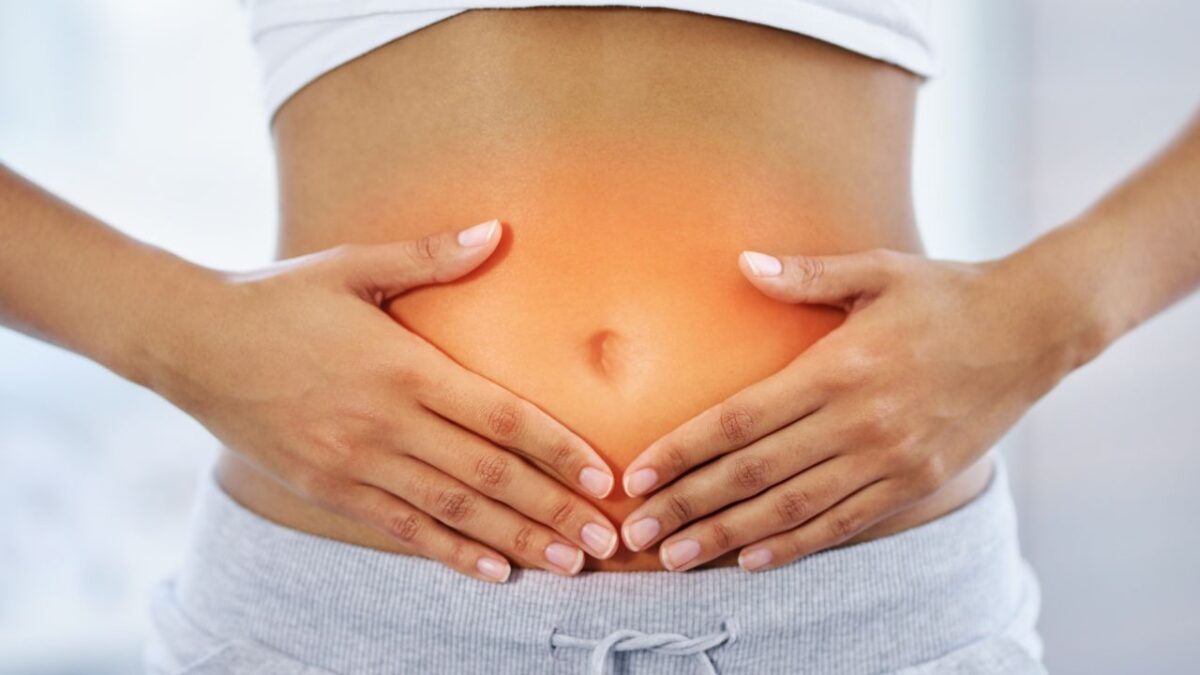How Menopause Might Be Messing with Your Gut – And What to Do About It!

While many of us are already prepared for the more talked-about symptoms of menopause like hot flashes and mood swings, there’s another area that often doesn’t get as much attention—the health of your gut. Changes in your gut microbiome during menopause can lead to a range of digestive discomforts, from bloating to irregular bowel movements, impacting overall well-being. In this guide, we’ll dive into the intricate relationship between menopause and gut health. We’ll explore how hormonal changes affect your digestive system, the common gut-related symptoms that can arise during menopause, and the latest research insights. Plus, we’ll share some practical and manageable ways to keep your gut feeling good throughout menopause, ensuring you can navigate this transition as smoothly as possible. So, let’s get started and unpack the hidden impacts of menopause on your gut health.
Understanding the Gut Microbiome
The gut microbiome is a fascinating and complex system within your body, often referred to as a bustling metropolis where trillions of microbes, including bacteria, fungi, and viruses, reside. This community lives primarily in your intestines and plays a critical role in your health by influencing digestion, bolstering your immune system, and even affecting your mood and mental health.
The microbes in your gut help break down food, extracting nutrients that your body needs while also helping to combat harmful bacteria and build a resilient immune system. Additionally, research suggests there is a significant connection between the gut microbiome and the brain, often called the gut-brain axis. This relationship means that a healthy gut can contribute to a better mood and vice versa.
Keeping this microbial community balanced is crucial. An imbalance, known as dysbiosis, can lead to digestive issues, inflammation, and even contribute to chronic diseases such as obesity and type 2 diabetes. Factors that influence the health of your gut microbiome include diet, lifestyle, medication use, and more. A diet rich in diverse fibers, vegetables, and fermented foods can promote a healthy and diverse gut microbiome, supporting overall health and well-being.
Hormones and Your Gut
During menopause, the decline in the hormones estrogen and progesterone can significantly impact many systems in your body, including your gut microbiome. Estrogen, particularly, has been found to play a crucial role in maintaining the diversity and stability of the gut microbiome. It influences the growth of beneficial bacterial strains that aid in digestion and protect against infection.

As estrogen levels drop, the reduced hormonal support can lead to a less diverse gut microbiome, which might compromise your digestive health and overall well-being. This reduction in microbiome diversity can make you more susceptible to infections, inflammation, and gastrointestinal discomfort.
Moreover, estrogen influences how your body utilizes and stores fat and how it regulates blood sugar levels. These changes can indirectly affect your gut by altering the environment in which your gut microbes operate, potentially leading to changes in their composition and function. Maintaining hormonal balance during menopause is therefore not just about managing traditional symptoms but also about supporting the gut microbiome to ensure it continues to function effectively.
Gut Symptoms During Menopause
Many women experience a variety of digestive symptoms during menopause, including bloating, gas, and irregular bowel movements. These symptoms can often be traced back to changes in the gut microbiome caused by hormonal fluctuations.
When estrogen levels decrease, the gut’s motility—or the movement of food through the digestive system—can slow down, leading to bloating and constipation. Additionally, a less diverse gut microbiome may not produce enough of the necessary enzymes to break down food efficiently, leading to gas and discomfort.
Moreover, the connection between the gut and the immune system means that changes in gut bacteria can influence immune responses, potentially increasing inflammation and sensitivity to certain foods, which might not have been problematic before. This altered immune response can exacerbate gastrointestinal symptoms and contribute to an overall feeling of malaise.
Addressing these symptoms involves a combination of dietary adjustments, physical activity, and stress management to help stabilize the gut microbiome and improve gut motility. Increasing fiber intake, for instance, can help regulate bowel movements, while probiotics may restore a healthy balance of gut bacteria.
What the Research Says
Recent studies have shed light on how menopause alters the gut microbiome. Research indicates that postmenopausal women often exhibit a significant shift in their gut bacteria compared to premenopausal women. Specifically, levels of beneficial bacteria such as Bifidobacterium and Lactobacillus, which play key roles in health maintenance, tend to decrease.
These bacteria are integral to the gut for several reasons: they help digest food, produce vitamins, and protect against pathogens. Their decline can disrupt these processes and contribute to the digestive and immune challenges often faced during menopause.
Understanding these changes is crucial for developing targeted interventions to support gut health in menopausal women. For instance, supplementing diets with probiotics and prebiotics can help increase the levels of beneficial bacteria, potentially mitigating some of the adverse effects of menopause on the gut.
Keeping Your Gut Happy During Menopause

Maintaining gut health during menopause is vital for ensuring overall wellness. Here are a few practical tips to help keep your gut microbiome balanced:
1. Eat Well
- Fiber-Rich Foods: Incorporate plenty of fiber-rich foods into your diet. Whole grains, fruits, vegetables, legumes, and nuts are excellent sources. Fiber helps keep your digestive system running smoothly and supports a diverse gut microbiome.
- Fruits and Veggies: Aim to fill half your plate with fruits and vegetables at each meal. These foods are not only high in fiber but also packed with vitamins, minerals, and antioxidants that promote overall health and support menopause and gut health.
- Fermented Foods: Include fermented foods like yogurt, kefir, sauerkraut, kimchi, and miso in your diet. These foods contain probiotics, which are beneficial bacteria that can help balance your gut microbiome.
- Prebiotics: Prebiotics are non-digestible fibers that feed the good bacteria in your gut. Foods rich in prebiotics include garlic, onions, leeks, asparagus, and bananas. Incorporating these into your diet can support a healthy gut.
- Probiotics: Consider taking a probiotic supplement if you’re not getting enough from your diet. Probiotics can help replenish and maintain healthy gut bacteria, especially during menopause.
2. Stay Active
- Regular Exercise: Engage in regular physical activity. Exercise can enhance the diversity of your gut microbiome, which is beneficial for digestion and overall health. Aim for at least 30 minutes of moderate exercise most days of the week.
- Types of Exercise: Include a mix of aerobic exercises like walking, jogging, or cycling, along with strength training and flexibility exercises such as yoga or Pilates. These activities support both overall health and menopause and gut health.
3. Hydrate
- Drink Water: Staying hydrated is essential for digestion. Water helps break down food so your body can absorb nutrients. Aim to drink at least 8 glasses of water a day, more if you’re active or live in a hot climate.
- Other Hydrating Options: Herbal teas and water-rich foods like cucumbers, tomatoes, and watermelons can also contribute to your daily hydration needs.
4. Manage Stress
- Stress Reduction Techniques: Chronic stress can negatively impact your gut microbiome. Incorporate stress-reducing practices such as yoga, meditation, deep breathing exercises, or mindfulness into your daily routine.
- Relaxation Activities: Find activities that relax you, whether it’s reading, gardening, or listening to music. Managing stress is crucial for maintaining a healthy balance between menopause and gut health.
5. Talk to Your Doctor
- Personalized Advice: Your healthcare provider can offer personalized advice tailored to your specific needs. They can help you navigate dietary changes, recommend supplements, and provide strategies to manage menopause symptoms that might affect your gut health.
- Medical Guidance: If you’re experiencing severe or persistent digestive issues, it’s important to seek medical advice. A healthcare professional can help determine the underlying cause and develop an effective treatment plan.
By implementing these strategies, you can help ensure that your gut remains healthy and balanced throughout menopause, thereby enhancing your overall health and quality of life.
